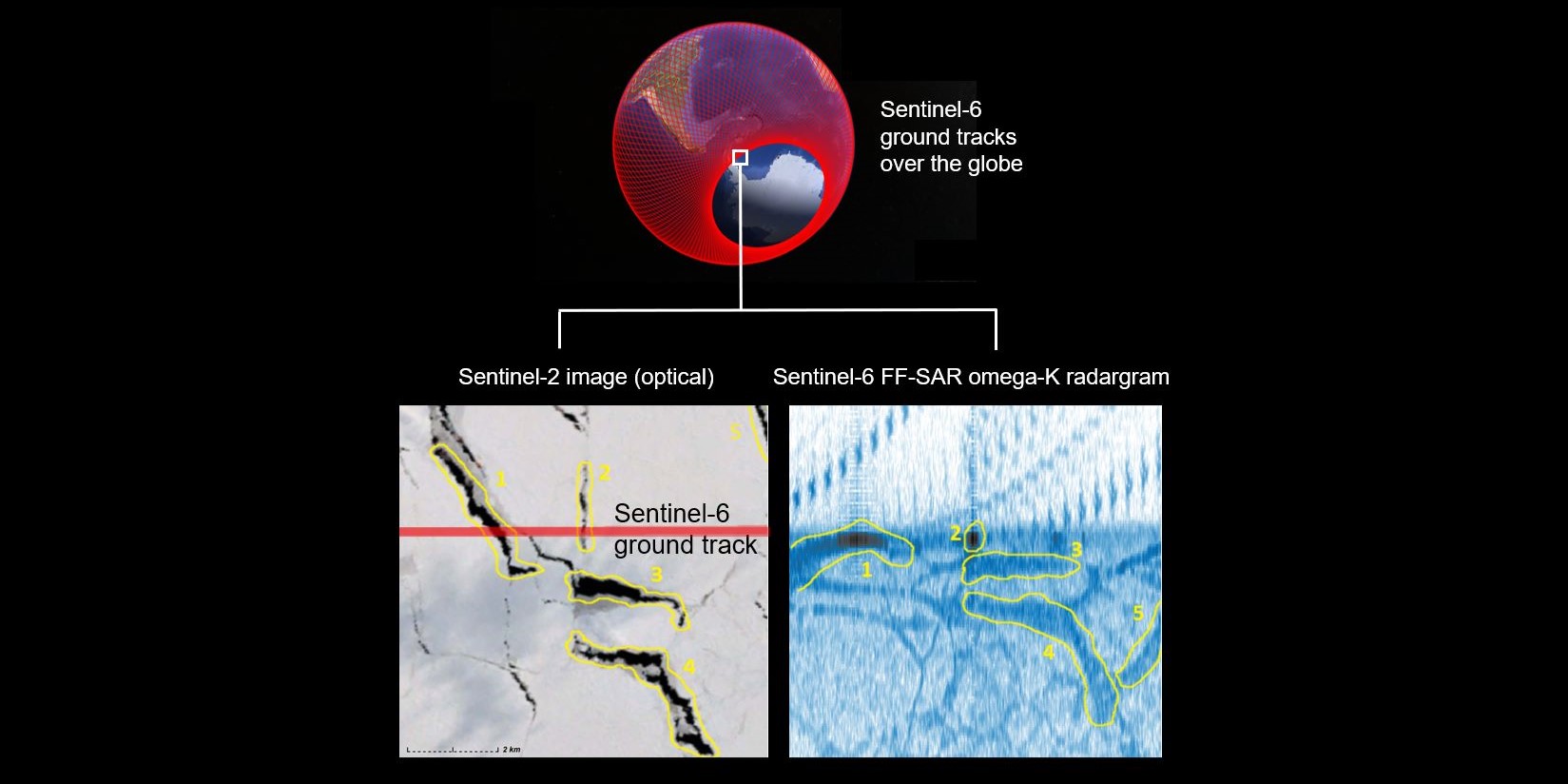A new paper led by SARWAVE consortium members presents a new 2D frequency-based FF-SAR Omega-K algorithm that substantially cuts down the execution time of Sentinel-6 FF-SAR altimetry data processing. This methodology opens the door to new scientific research and operational uses that require processing vast amounts of data; including swell estimation on open ocean, lead and iceberg detection on sea ice, and inland water processing.

Improving swell retrieval: higher resolution, shorter execution time
For years, using altimetry data to retrieve swell posed certain limitations due to the unique nadir-pointing geometry characteristic of radar altimeters, and a restricted spatial resolution of (300 m in the case of Delay-Doppler observations). The use of Fully-Focussed SAR backprojection algorithm (A. Egido and W. H. F. Smith, 2017)(https://doi.org/10.1109/TGRS.2016.2607122) allowed to catch swell signals down to the meter scale (O. Altiparmaki et al, 2022)(https://doi.org/10.1029/2021GL096224).

This new Omega-K based algorithm reduces more than half of the number of operations required for Sentinel-6 altimetry data parameters, shrinking processing time from hours to seconds while keeping the same resolution.
For instance, during a processed time of 2 seconds for Sentinel-6 parameters (18,000 echoes of 256 range samples), while FFSAR backprojection algorithm requires approximately 216,000 operations, the Omega-K algorithm requires 922 operations (numerical approach) and in only 74 operations in closed form.
The algorithm has undergone a full validation process over point targets, including simulated and real data from transponders and a corner reflector.
Reference:
S. Hernández-Burgos, F. Gibert, A. Broquetas, M. Kleinherenbrink, A. Flores De la Cruz, A. Gómez-Olivé, A. García-Mondéjar, M. Roca i Aparici. ‘A Fully Focused SAR Omega-K Closed-Form Algorithm for the Sentinel-6 Radar Altimeter: Methodology and Applications’, in IEEE Transactions on Geoscience and Remote Sensing, vol. 62, pp. 1-16, 2024, Art no. 5206016 https://doi.org/10.1109/TGRS.2024.3367544.